HGTD Quality Database
This category will contain article resources that relate to the Harmonization for Genetic Testing Database
11 articles in this category
-
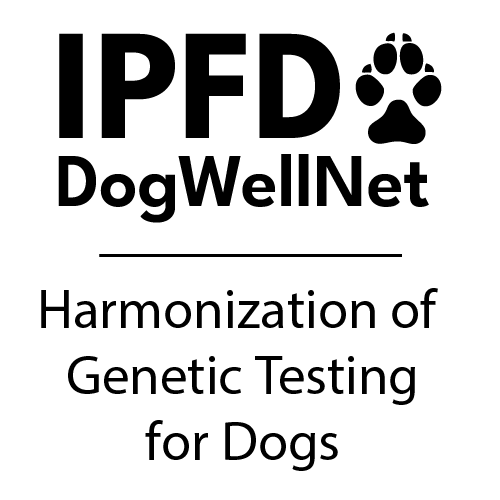 Table of Contents A description of the Breed relevance ratings is shown below: More information on the HGTD Breed Relevance Rating (BRR) - terms, application, and guidance Different Test Types Definitions: What does it mean when there is a BRR for "ALL"? What is considered when estimating BRR? How do BRRs apply to my Breed? How do BRRs apply to my dog? Breed Relevance Rating ???'s - Input? Related Content BLOGS
Table of Contents A description of the Breed relevance ratings is shown below: More information on the HGTD Breed Relevance Rating (BRR) - terms, application, and guidance Different Test Types Definitions: What does it mean when there is a BRR for "ALL"? What is considered when estimating BRR? How do BRRs apply to my Breed? How do BRRs apply to my dog? Breed Relevance Rating ???'s - Input? Related Content BLOGSHGTD - What is a Breed Relevance Rating?
To better support dog owners, the veterinary community, and dog health advisors, in 2020 we introduced Breed Relevance Ratings in the HGTD.
- 0 comments
- 7,716 views
-
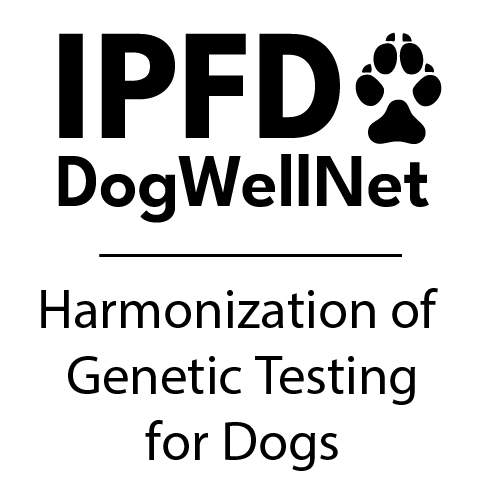 US: AABB American Association of Blood Banks http://www.aabb.org AABB is an international leader in standards development, accreditation and implementation of quality systems in transfusion medicine and cellular therapies. US: AAHA American Animal Hospital Association https://www.aaha.org/professional/about_aaha/default.aspx A founding member of Partners for Healthy Pets (PHP) <http://www.partnersforhealthypets.org> and is a member of the Human Animal
US: AABB American Association of Blood Banks http://www.aabb.org AABB is an international leader in standards development, accreditation and implementation of quality systems in transfusion medicine and cellular therapies. US: AAHA American Animal Hospital Association https://www.aaha.org/professional/about_aaha/default.aspx A founding member of Partners for Healthy Pets (PHP) <http://www.partnersforhealthypets.org> and is a member of the Human Animal- Here you will find information on organizations throughout the world that are involved in matters of accreditation and establishing industry standards utilized by medical professionals and/or veterinary practitioners. Best standards and practices policies, procedures and considerations are developed to include those that affect human or veterinary testing laboratory operations.
- 0 comments
- 4,949 views
-
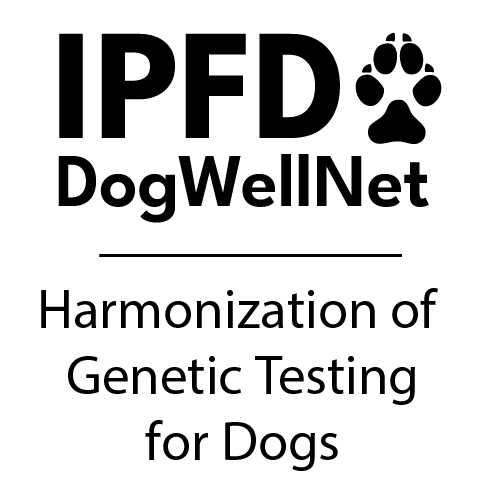 Accreditation Formal An international accreditation, recognized by an independent body. See GTP information for specifics of this accreditation. Accreditation Other A national or international accreditation. See GTP information for specifics of this accreditation. Breeding Advice Describes what, if any, breeding advice a GTP provides. This is more than just reporting results. Diagnostic To
Accreditation Formal An international accreditation, recognized by an independent body. See GTP information for specifics of this accreditation. Accreditation Other A national or international accreditation. See GTP information for specifics of this accreditation. Breeding Advice Describes what, if any, breeding advice a GTP provides. This is more than just reporting results. Diagnostic To- You will see these terms/acronyms referenced in the lab's and or tests listings, and general information on terms.
- 0 comments
- 4,266 views
-
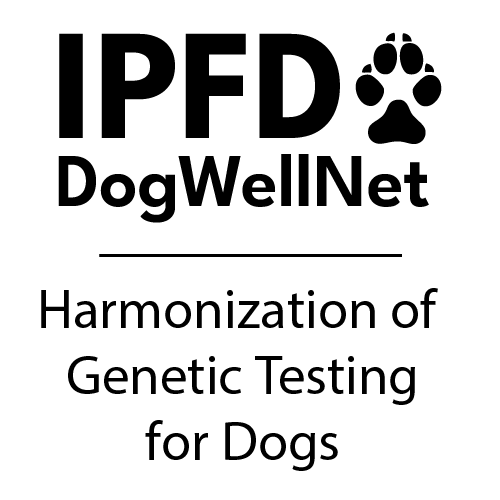 What does accreditation actually mean? Accreditation in its most simple form is a process in which certification of competency, authority, or credibility is presented. The process could refer to how a laboratory or business follows external professional guidelines and standards such as laboratory equipment maintenance, standardized sample handling, test performance, etc. or it could be step decided by the lab/business themselves – such as customer support/test report policies. There are
What does accreditation actually mean? Accreditation in its most simple form is a process in which certification of competency, authority, or credibility is presented. The process could refer to how a laboratory or business follows external professional guidelines and standards such as laboratory equipment maintenance, standardized sample handling, test performance, etc. or it could be step decided by the lab/business themselves – such as customer support/test report policies. There are- Understanding accreditation, especially on an international scale, can feel like a daunting process. This brief overview may help you identify what types of accreditation are important to you, when choosing your genetic test provider.
- 0 comments
- 4,220 views
-
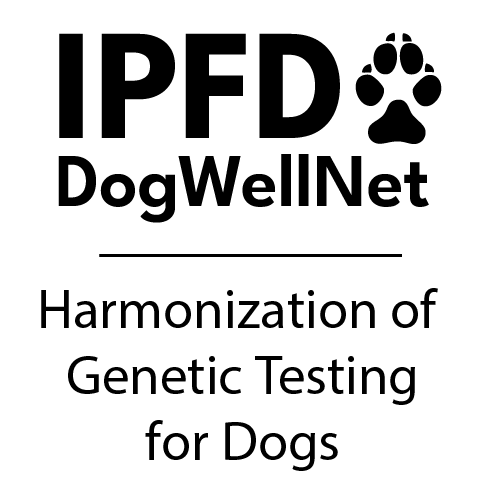 AD - Autosomal Dominant One mutated copy of the mutant gene, inherited either from the mother or father is sufficient for an individual to be affected by an autosomal dominant disorder. In some cases, an affected person inherits the condition from an affected parent. ADIP - Autosomal Dominance, Incomplete Penetrance One mutated copy of the mutant gene, inherited either from the mother or father is sufficient for an individual to be affected by an autosomal dominant disorder. I
AD - Autosomal Dominant One mutated copy of the mutant gene, inherited either from the mother or father is sufficient for an individual to be affected by an autosomal dominant disorder. In some cases, an affected person inherits the condition from an affected parent. ADIP - Autosomal Dominance, Incomplete Penetrance One mutated copy of the mutant gene, inherited either from the mother or father is sufficient for an individual to be affected by an autosomal dominant disorder. I- Mode of Inheritance terms referenced in the HGTD
- 0 comments
- 5,262 views
-
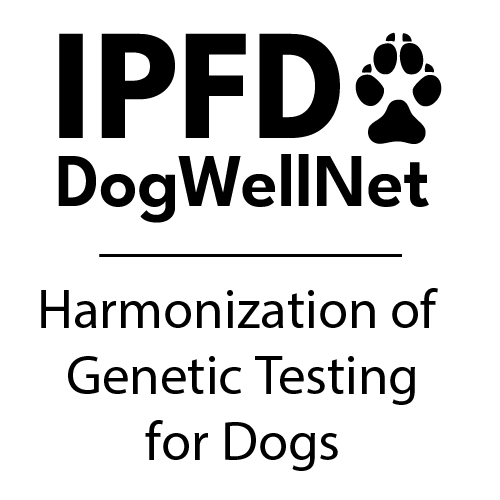 Why don’t I see the Laboratory I normally use? The HGTD database lists all the genetic test providers that have volunteered to contributed data for publication. There are many other genetic test providers available who do not currently participate in the HGTD database. Over time, the HGTD aims to invite and include as many providers, and their data, as possible. Why can’t I find my breed? The HGTD database includes standard breed names defined by the FCI, in English, a
Why don’t I see the Laboratory I normally use? The HGTD database lists all the genetic test providers that have volunteered to contributed data for publication. There are many other genetic test providers available who do not currently participate in the HGTD database. Over time, the HGTD aims to invite and include as many providers, and their data, as possible. Why can’t I find my breed? The HGTD database includes standard breed names defined by the FCI, in English, a- Here we offer answers to some frequently asked questions about the Harmonization of Genetic Testing for Dogs.
- 0 comments
- 4,283 views
-
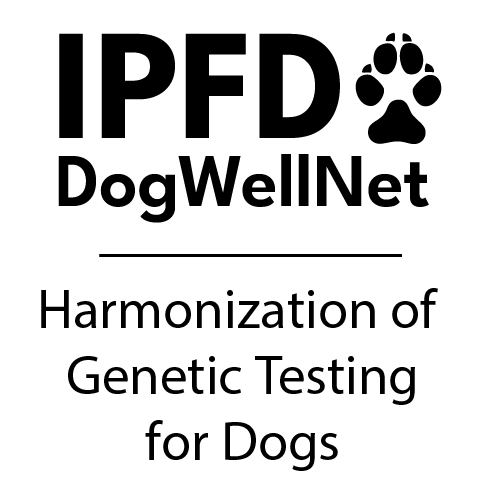 To Get Started: First, have a look around the site. You’ll find the HGTD database and search options, as well as resources that help to explain some of the terms used on the database, and guides for understanding accreditation and quality standards. If you are new to genetic testing, you may want to start by taking some time to read about accreditation before using the database, and our resources on breed-specific health recommendations, and genetic testing more generally.
To Get Started: First, have a look around the site. You’ll find the HGTD database and search options, as well as resources that help to explain some of the terms used on the database, and guides for understanding accreditation and quality standards. If you are new to genetic testing, you may want to start by taking some time to read about accreditation before using the database, and our resources on breed-specific health recommendations, and genetic testing more generally.- How to Use The HGTD:
Welcome to the Harmonization of Genetic Testing for Dogs resource. This resource is designed to improve standardization of, and access to, robust genetic testing to support health improvements and a sustainable future for healthy dogs. Here, you’ll find a wealth of information on Genetic Testing Providers (labs); genetic tests, and tests by breed. There are two major components of the HGTD: the Quality Testing Database and Genetic Counselling resources (still in development).
- 0 comments
- 5,695 views
-
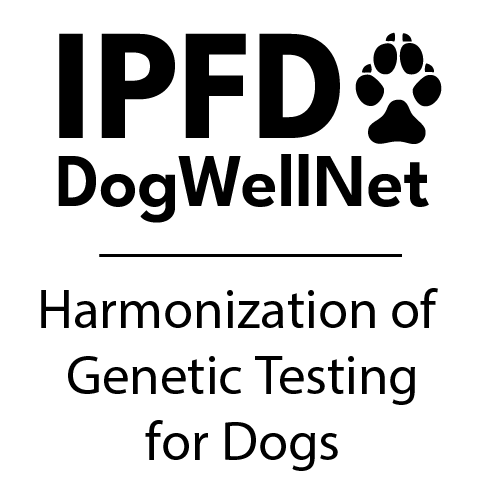
- Harmonization of Genetic Testing for Dogs (HGTD) - YouTube A tool to help dog owners, breeders and veterinarians, the HGTD is an online searchable database providing information on genetic tests available for dog breeds, information on the tests themselves and quality control measures used by genetic test providers participating in the HGTD.
- 0 comments
- 3,814 views
-
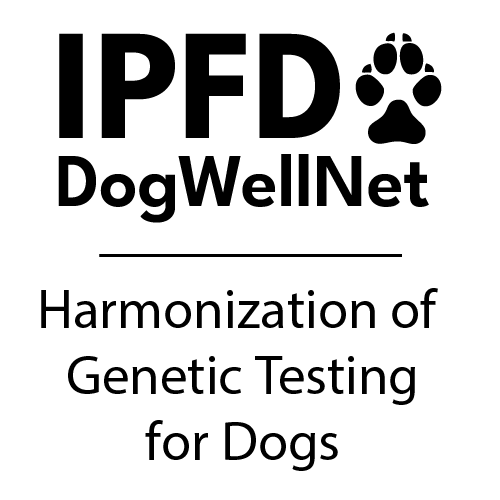 HGTD Initiative Description The IPFD Harmonization of Genetic Testing for Dogs (HGTD) is a multi-stakeholder, collaborative effort to create an open access, sustainable online resource that: • Catalogues information provided voluntarily from Genetic Test Providers (GTPs) including information on their company and services, quality measures and expertise, tests offered, and more. We are continually engaging more GTP participants. • Has collated and assembled existing and new resourc
HGTD Initiative Description The IPFD Harmonization of Genetic Testing for Dogs (HGTD) is a multi-stakeholder, collaborative effort to create an open access, sustainable online resource that: • Catalogues information provided voluntarily from Genetic Test Providers (GTPs) including information on their company and services, quality measures and expertise, tests offered, and more. We are continually engaging more GTP participants. • Has collated and assembled existing and new resourc- This article describes the role of Genetic Test Providers (GTPs) in the Harmonization of Genetic Testing for Dogs (HGTD) initiative, provides information on who they are and why they participate, and defines processes and levels of participation for current and prospective collaborating GTPs.
- 0 comments
- 4,475 views
-
 Authors and affiliations Lisa G. Shaffer, Kyle Sundin, Anja Geretschlaeger, Julia Segert, June E. Swinburne, Ramon Royal, Robert Loechel, Christina J. Ramirez, Blake C. Ballif 1. Paw Print Genetics Genetic Veterinary Sciences, Inc. - Spokane, USA 2. Feragen GmbH - Salzburg, Austria 3. Animal DNA Diagnostics Ltd. - Cambridge, UK 4. VetGen, LLC. - Ann Arbor, USA PDF Version: https://link.springer.com/content/pdf/10.1007%2Fs00439-018-1954-4.pdf
Authors and affiliations Lisa G. Shaffer, Kyle Sundin, Anja Geretschlaeger, Julia Segert, June E. Swinburne, Ramon Royal, Robert Loechel, Christina J. Ramirez, Blake C. Ballif 1. Paw Print Genetics Genetic Veterinary Sciences, Inc. - Spokane, USA 2. Feragen GmbH - Salzburg, Austria 3. Animal DNA Diagnostics Ltd. - Cambridge, UK 4. VetGen, LLC. - Ann Arbor, USA PDF Version: https://link.springer.com/content/pdf/10.1007%2Fs00439-018-1954-4.pdf- canine genetic testing laboratories
- genetic tests
- canine lab guidelines
- lab standards
- direct to consumer genetic testing-canine
- A recent publication authored by members of the HGTD puts forward a suggested system of standards and guidelines for canine genetic testing laboratories. Standards and guidelines for canine clinical genetic testing laboratories ______________________________________________________________________________________________________________ See the IPFD commentary on this publication, in the context of Improving Canine Genetic Testing. _______________________________________________________________________________________________________________ First Online: 13 November 2018... The paper sets out a series of standard requirements the authors feel should provide both minimum and optimal standards for any canine genetic testing laboratory, including: personnel, facilities, quality practices, privacy issues, and a section on test validation and results reporting. A self-assessment check list is also available. While not all aspects of the self-assessment will be applicable to all genetic test providers, it is one way that test providers may choose to improve the quality of direct to consumer genetic testing.
- 0 comments
- 2,054 views
-
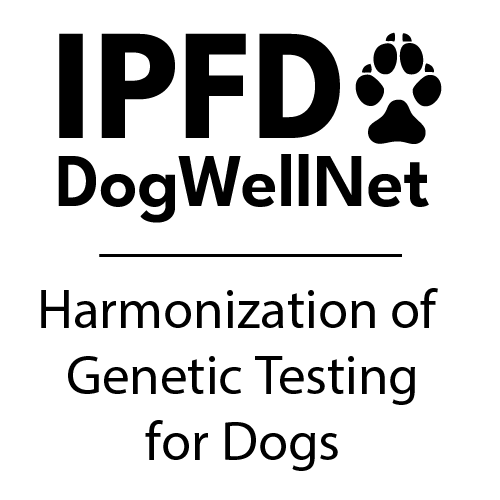 Additional Information: HGTD Rationale and Background There is currently no accreditation or standardization for genetic (DNA) testing for companion animals, and formal, international regulation/oversight is unlikely. There are increasing numbers of Genetic Test Providers (GTPs) offering a myriad of tests; these GTPs are diverse. Concerns have included reports of inconsistent, irregular and even suspected fraudulent activities. There has been a dire need for a collaborat
Additional Information: HGTD Rationale and Background There is currently no accreditation or standardization for genetic (DNA) testing for companion animals, and formal, international regulation/oversight is unlikely. There are increasing numbers of Genetic Test Providers (GTPs) offering a myriad of tests; these GTPs are diverse. Concerns have included reports of inconsistent, irregular and even suspected fraudulent activities. There has been a dire need for a collaborat- Click on a link below or scroll down to view each section:
HGTD In The News HGTD News From IPFD Initiative Background
Executive Summary
Timeline
Initiative Background
Executive Summary
Timeline
Contact us to explore opportunities for Sponsorship and Collaboration:
Marc Ralsky CEO - marc.ralsky@ipfdogs.com
Aimée Llewellyn-Zaidi, HGTD Project Director - aimee.llewellyn-zaidi@ipfdogs.com
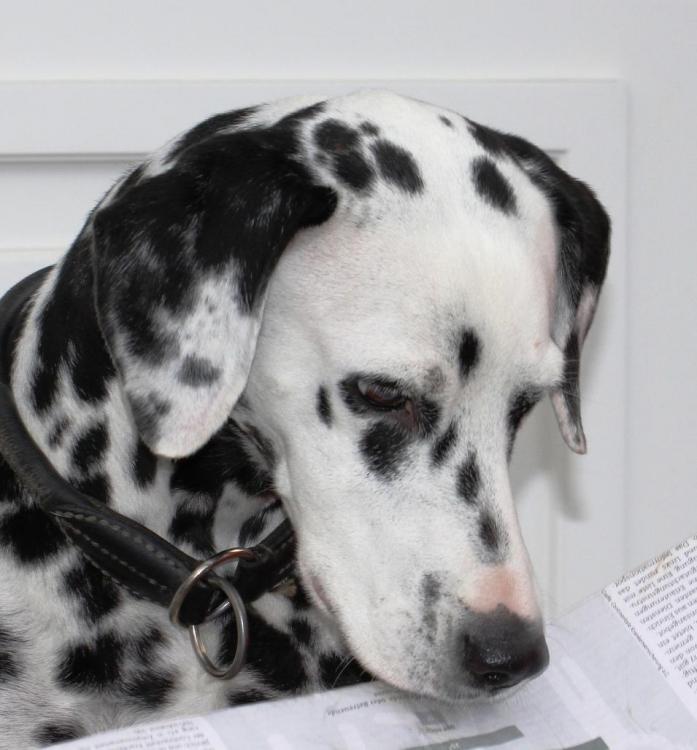 HGTD In The News
October 2023:
Vet Record Editorial on the Genetics of Pedigree Health
September 14, 2020:
IPFD Mentioned in Articles on Australian Labradoodle DNA Study (The Guardian, The Conversation)
HGTD In The News
October 2023:
Vet Record Editorial on the Genetics of Pedigree Health
September 14, 2020:
IPFD Mentioned in Articles on Australian Labradoodle DNA Study (The Guardian, The Conversation)
September 13, 2019: HGTD Interview in Story from ABC 10 (Sacramento, CA)
May 16, 2019: HGTD Gets Mention in Story from WGME CBS 13 (Portland, ME) March 8, 2019: USA Today article: DNA testing kits for dogs are super popular. But the testing has some veterinarians pushing standards February 11, 2019: The Associated Press (and various media) article: Dog DNA Testing Takes Off, and Generates Debate November 12, 2018:
HGTD featured in The Atlantic: What Vets Think of ‘23andMe for Dogs’
October 3, 2018:
IPFD submission responding to “Pet genomics medicine runs wild” published in Nature
Visit our IPFD in the Media section for more published articles, commentaries, etc. from outside organizations that reference the HGTD or IPFD. Items in this section related to the HGTD specifically are also presented together in the article In the News: Harmonization of Genetic Testing for Dogs. HGTD News from IPFD December 19, 2018:
Update on the Harmonization of Genetic Testing for Dogs (HGTD)
Visit our IPFD News section for more news related to the HGTD and other IPFD news.
- Catalogs information provided voluntarily from genetic test providers (GTPs) including information on their company and services, quality measures and expertise, tests offered and more. We are continually engaging more GTP participants.
- Has collated and assembled existing and new resources for genetic counselling and education; and provided the foundation for further developments.
- Will host expert panel reviews of genetic tests and their application.
- Plans to include a program for standardized proficiency testing and potentially peer review and audit.
Contact us to explore opportunities for Sponsorship and Collaboration:
Marc Ralsky CEO - marc.ralsky@ipfdogs.com
Aimée Llewellyn-Zaidi, HGTD Project Director - aimee.llewellyn-zaidi@ipfdogs.com
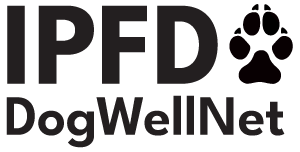
- 0 comments
- 18,553 views


